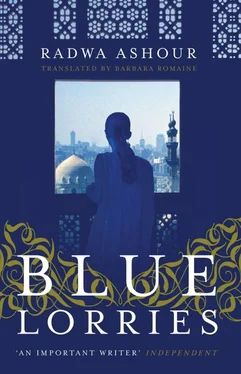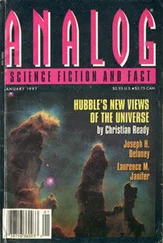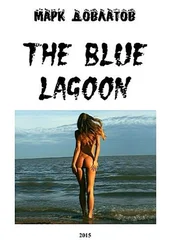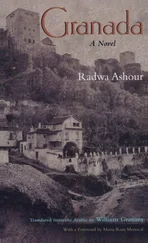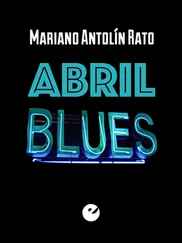In another passage she writes:
Lord, all I ask is to become a martyr
So take my soul tomorrow morning
Before my eyes open upon another day
I’ve asked for martyrdom and even abstained from food and water for eight days.
And fewer than that and more than that.
A resistance whose cruelty only the honourable and pure know,
I’ve asked for martyrdom for the sake of truth
And now I can’t find it.
Deliver me, O God
For suffering has been emplaced upon suffering
Upon suffering
I weep so often, this you know.
She was struck by a car on 13 March, corresponding to 10 Muharram. By accident or by design? I don’t know.
Chapter twenty-five
The prison of life, the splendour of life
At Cairo Station the commotion, the disorder, the dirt, and the crowds take me by surprise. I stop by one of the stalls and look at the books on display. I reach out to an old edition of two of Tawfik al-Hakim’s books, with faded covers: The Prison of Life and The Splendour of Life . I leaf through them, then put them back where I found them and buy some newspapers and magazines, which I place in the outer pocket of my small, wheeled travelling case. Pulling it behind me, I go past the platforms of the trains for Alexandria and the cities of the Delta and eastward, proceeding to the platforms for trains to Upper Egypt. I wait for the train. I see an attractive, sweet-faced woman striding resolutely, a little girl with a ponytail clinging to her hand. Walking beside them is a heavy woman carrying an infant swaddled in blankets. A middle-aged man with a heavy moustache and white hair smiles at the girl, who waits until her mother’s attention is elsewhere to stick her tongue out at him. The train approaches. It stops. I board and look for my seat number — my seat is next to the window, and I settle into it. The train moves off slowly, then gathers speed and a monotonous rhythm. From the window I observe dilapidated buildings, heaps of rubbish, and the absence of any colours that are not faded or dusty or yellow. The train makes its way through a cloud of dust. Then we are past the villages of Giza and we enter the fields. Who was it that said to me once that the eye is also needy? The phrase consisted only of this ambiguous ellipse, and yet I understood. We were, as I recall, at the periphery of a city and approaching Dahshour, where we were met by palm groves, the colour of the palm fronds that uncertain shade between pure green and a subtle, mysterious silvery hue. The yellow of the laden branches of the fruit-bearing trees was liberally interspersed with a lovely red. Yes, the eye is needy. From my window now I see, not palms, but the expanse of long fields, divided into rectangles and squares, each containing such crops as its farmer cultivated. I laugh suddenly, and a server from the buffet stops by me, thinking my laughter is meant to summon him. I wasn’t thinking of ordering a cup of tea. I order a cup of tea. He pours the boiling water over the tea bag and stirs it with a spoon to dissolve the sugar, then presents the cup to me. I am smiling again, watching the little girl with her mother in the train. Between one sip and another from my cup, my thoughts turn to Nadir and Nadeem. Nadir laughed, and Nadeem cried. Nadeem had wet himself. He said, ‘I want to go to the toi —’ but he didn’t complete the sentence. He wet his seat and the moisture began to flow in a thin trickle down the leg of his trousers. Before Hamdiya could open her mouth to scold him, I grabbed her hand and gave it a squeeze. She understood. I admonished Nadeem good-humouredly and said to his brother, ‘This happens to everyone. Let’s go wash up and put on some new trousers.’ I carried him in my arms to the train lavatory. The residual odour of the child’s urine clung to my dress throughout the journey. I had washed my hands and my neck, but I couldn’t very well repeat history — take off my dress and exit the lavatory in my underwear. When my aunt greeted me with an embrace, I began to laugh out loud. I whispered to her, ‘Aunt, you’ll have to change your clothes and take a bath before you go to afternoon prayers. The front of my dress is soaked with Nadeem’s urine!’ I laugh again, and for the second time the buffet server pauses by me. I’ll have to tell him that, when I want to get someone’s attention, I call him, just like everyone else on God’s green earth. I shake my head and tell him, ‘No, thank you — I don’t want anything.’ I extract the newspapers from the pocket of my case. I swallow my daily dose of poison; I must admit I have a strong stomach — I can take it.
I move rapidly from one newspaper to another, then open a magazine in which I read a quarter of an article here and a few lines of one there. I fold up the newspapers and magazines and put them under the seat. It’s not littering — they’ll collect them with the rubbish when they tidy the train — surely they must tidy the train from time to time! I close my eyes.
The boys went to work in Dubai. Cairo or Dubai — what’s the difference? Besides, that is, the salary and the relative ease of day-to-day life? But the apparatus is what it is. Was it Foucault who said this, or is it a quotation he cited in his book, the one where he characterised prison as the deployment of a system’s power over a person’s behaviour, his freedom, and his time, every day, day in and day out, year after year. It decides for him when to wake up and when to sleep, when to work, when to eat, when to rest, when to talk and when to keep quiet. It defines the nature of his work and the required level of productivity. It dictates the movements of his body, and appropriates his physical and spiritual resources. Such is prison, albeit with variations. Here or there — it makes no difference. I close my eyes. I keep them closed, thinking maybe I’ll have a nap. Perhaps I do nap. I look at my watch: between the time I closed my eyes and when I opened them five minutes have elapsed. I have a long way to go. I observe two women sitting on the opposite side, to my left across the aisle. One of them is wearing a dark-coloured dress, which drapes a flat chest and a long torso. She is lean and stiff, with a hard face and her hair pulled tightly back and secured behind. The other is full-figured and looks amiable, her body generously curved, and she wears a multi-coloured dress. She has left her hair free to wreathe her face in ringlets. Are they sisters? I smile at this foolish notion, and then pursue it: maybe they’re twins. I steal furtive glances at them and establish the difficulty of determining either woman’s age — it is as if they were ageless. Something about the way they sit makes them seem rather like statues — it’s odd: two ordinary statues on adjoining seats in an express train. The skinny one looks straight ahead as if staring into space, or as if she were sightless, blind. As for the plump one, her gaze takes in everything. For a moment, they appear to be two strangers who just happen to be riding the train together, and then all at once they bend at the same moment, inclining their torsos just slightly and whispering for a good while, as though colluding in some affair. I look at the stern one and a shiver of fear pervades my body. I shift my gaze to the other, and relax at the sight of her kind face, her matronly curves.
I gaze out of the window at a prospect of fields, which blurs things, and the women’s two images merge. I murmur the Qur’anic verse, ‘ “No fear, nor shall they grieve.” It’s just a couple of women I happen to have seen in the train.’ ‘The two of them,’ I think, ‘are going to dog me for the whole journey.’ I chide my heart for its forebodings: what ill omen can it find in the two women? I look away from the two of them and go back to Nadir and Nadeem. I miss them. The idea that they live so far away confounds me. Especially Nadeem. Will he never have the chance to become what he wishes? Hamdiya is a fool and a dolt, but she’s kind — she’ll come round, calm down, and the waters will resume their course; perhaps the boys will come home, get married, and then will come the grandchildren. I laugh, and steal a glance at the aisle. Thank God, the buffet-server isn’t in this car at the moment.
Читать дальше
